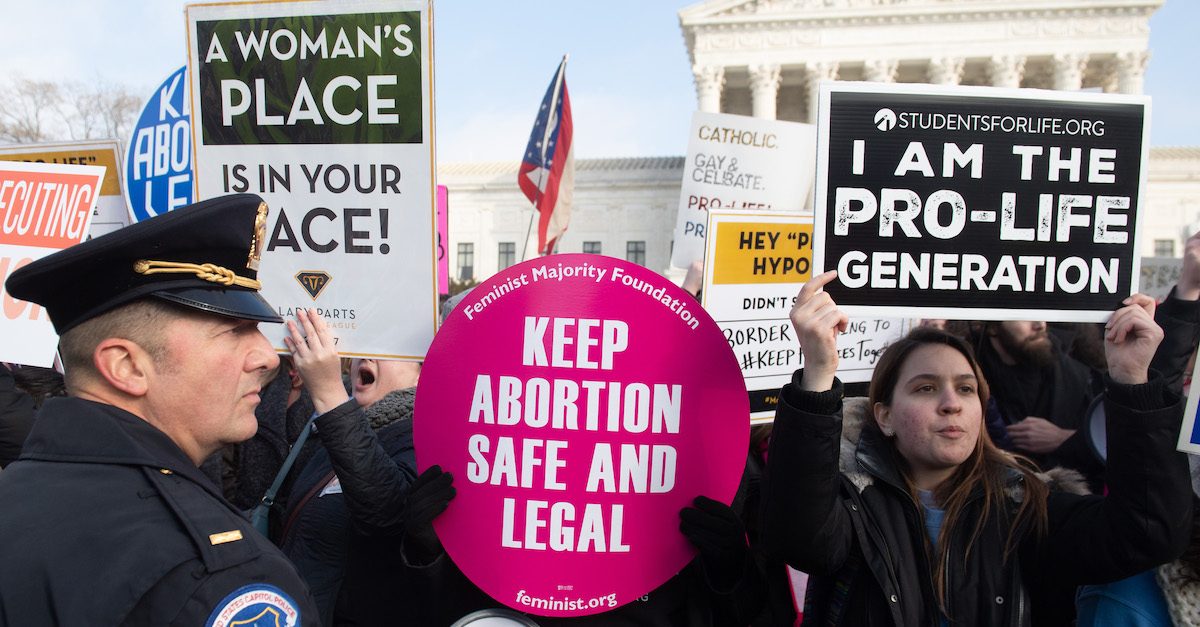
Georgia Attorney General Chris Carr on Monday filed the first legal defense of the state’s controversial fetal heartbeat abortion ban by stating outright that Georgia does not recognize abortion procedures as “health care.”
In May, Georgia Gov. Brian Kemp (R) signed into law a bill–also known as the Living Infants Fairness and Equality Act or LIFE Act–prohibiting all elective abortion procedures after doctors are able to detect a fetal heartbeat. Fetal heartbeats can be detected as soon as six weeks into a pregnancy — before many women are even aware of their pregnancy.
The law was challenged in June by the American Civil Liberties Union (ACLU), Planned Parenthood, and the Center for Reproductive Rights on grounds that the law violated substantive due process and void-for-vagueness doctrines. In July, the groups requested an injunction to prevent the law from taking effect January 1, as scheduled.
In his answer to the lawsuit, Carr pulled no punches, stating in the first line of the introduction that Georgia does not recognize abortions as “health care” or “medical care.”
“Defendants admit that this action is a constitutional challenge to House Bill 481 (H.B. 481), the text of which speaks for itself. Defendants deny all allegations in the complaint that killing a living unborn child constitutes ‘medical care’ or ‘health care,’” Carr wrote. He also said that the claims against the state should be barred by “sovereign immunity,” an esoteric doctrine that limits a state’s accountability to the jurisdiction of federal courts.
In addition to the state’s response to the lawsuit, Carr also filed a memorandum of law in opposition to the motion seeking an injunction against the law. In the memorandum, Carr argued that the law advances a substantial interest of the state, which in this case is protecting the life of an “unborn child.”
“[I]t is well-settled that ‘a fetus is a living organism within the womb, whether or not it is viable outside the womb (emphasis theirs),” Carr argued, quoting from the Supreme Court case Gonzalez v. Carhart. “Accordingly, a State may properly recognize that an unborn child is alive even before ‘viability’ and— consistent with its power to protect unborn life—may prohibit the killing of that child by restricting certain types of pre-viability abortions.”
Carr referred to fetuses as “unborn children” throughout the document.
“The act’s primary objective is to advance Georgia’s interest in protecting the life of the unborn, an objective the act pursues through restrictions on abortion, as well as other tax and child support provisions designed to promote the well-being of unborn children,” Carr wrote.
Carr was also not shy about having his sights set on taking the case all the way to the Supreme Court.
“The LIFE Act seeks to advance a critical government interest in protecting unborn human life in a context that has not been squarely addressed by the Supreme Court. Given that the law in this area remains unsettled, Plaintiffs cannot demonstrate a substantial likelihood of success on the merits,” citing a previous case which held that could be “no likelihood of success where ‘unsettled legal questions’ remain.”
Similar “heartbeat bills” have also been signed by the governors of Kentucky, Ohio, and Mississippi, but all have been blocked from taking effect by preliminary injunctions issued in federal courts.
Georgia Injunction Opposition Motion by Law&Crime on Scribd
Georgia Abortion Ban Lawsuit Response by Law&Crime on Scribd
[image via SAUL LOEB/AFP/Getty Images)]